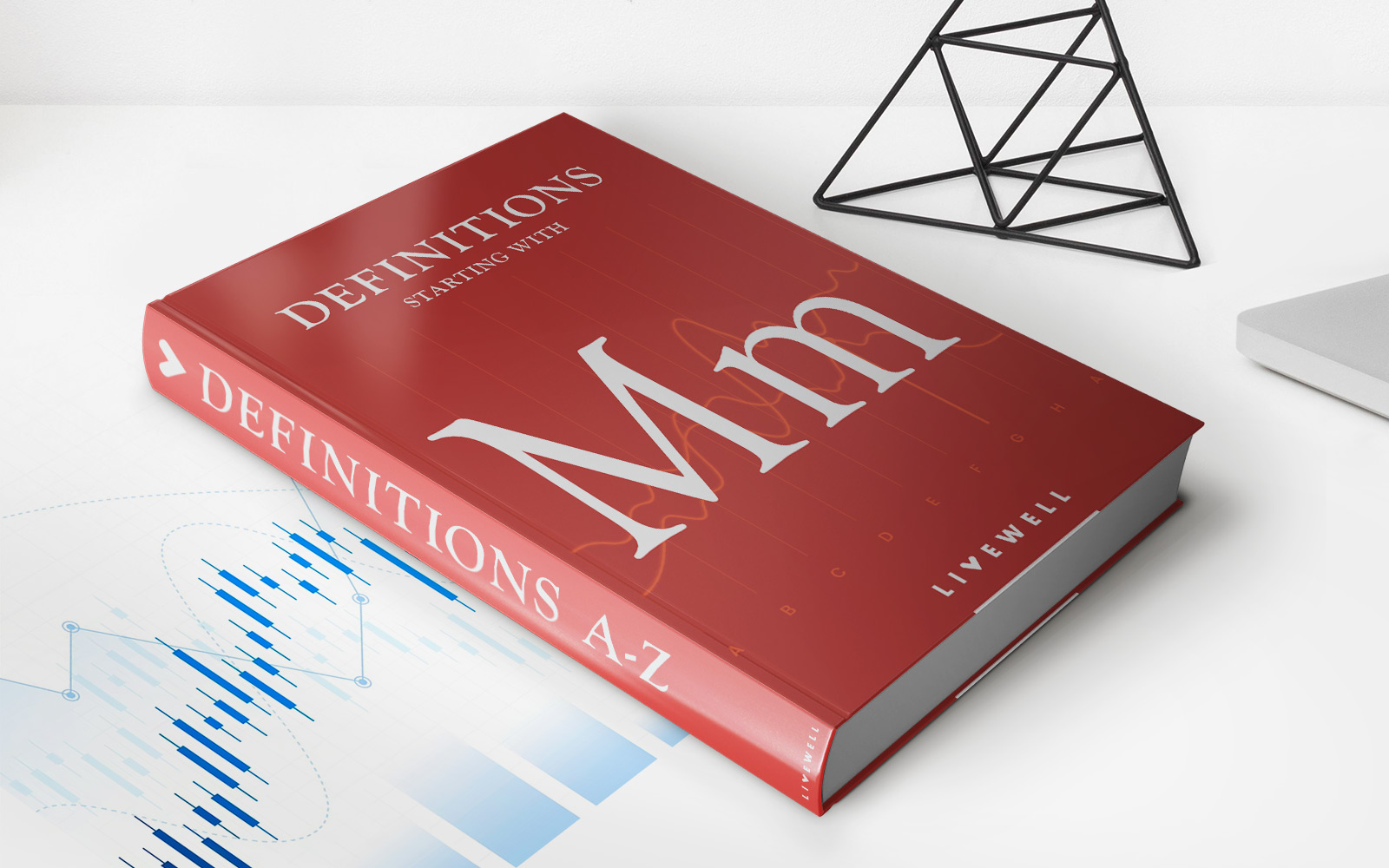

Finance
What Is An MBA In Accounting
Published: October 9, 2023
Discover the benefits of pursuing an MBA in Accounting with a focus on finance. Gain the skills and knowledge to excel in financial management and analysis. Start your journey today!
(Many of the links in this article redirect to a specific reviewed product. Your purchase of these products through affiliate links helps to generate commission for LiveWell, at no extra cost. Learn more)
Table of Contents
- Introduction
- Overview of MBA Programs
- Accounting Specialization in MBA Programs
- Importance of Accounting in Business
- Curriculum of MBA in Accounting Programs
- Core Courses in MBA Accounting Programs
- Elective Courses in MBA Accounting Programs
- Career Opportunities with an MBA in Accounting
- Salary Potential with an MBA in Accounting
- Advantages of Pursuing an MBA in Accounting
- Challenges of Pursuing an MBA in Accounting
- Conclusion
Introduction
Welcome to the world of finance and numbers! If you have a keen interest in finance, accounting, and business, pursuing an MBA in Accounting may be the perfect choice for you. An MBA, or Master of Business Administration, is a prestigious and sought-after degree that equips individuals with the necessary knowledge and skills to excel in the business world.
An MBA in Accounting is a specialization within the broader field of business administration, focusing specifically on financial management, analysis, and reporting. This degree program not only provides a comprehensive understanding of accounting principles but also offers a deep dive into strategic financial planning and decision-making.
Now more than ever, businesses require professionals who can navigate the complexities of financial regulations, tax laws, and compliance standards. With an MBA in Accounting, you will not only gain the expertise to manage financial operations effectively but also gain a competitive edge in the job market.
This article will provide a comprehensive overview of MBA programs with a focus on the accounting specialization. We will delve into the curriculum, career opportunities, salary potential, advantages, and challenges of pursuing an MBA in Accounting. By the end, you will have a solid understanding of what this degree entails and whether it aligns with your career aspirations.
So, fasten your seatbelts as we embark on a journey into the world of finance and accounting within the realm of an MBA program!
Overview of MBA Programs
MBA programs are graduate-level business degrees designed to prepare individuals for leadership roles in various industries. These programs provide a broad understanding of business functions, including finance, marketing, operations, and human resources, to develop well-rounded professionals capable of tackling complex business challenges.
Most MBA programs consist of a combination of core courses, elective courses, and experiential learning opportunities. The duration of an MBA program typically ranges from one to two years, depending on whether it is a full-time or part-time program.
While the core courses provide a foundation in fundamental business concepts and skills, elective courses allow students to specialize in a particular area of interest, such as accounting, finance, marketing, or entrepreneurship. This flexibility enables students to tailor their MBA experience to align with their career goals.
In addition to coursework, MBA programs often incorporate hands-on learning opportunities, including internships, consulting projects, case studies, and team-based projects. These practical experiences allow students to apply the theories and concepts learned in the classroom to real-world business scenarios.
Furthermore, many MBA programs emphasize the development of essential leadership and interpersonal skills. Effective communication, problem-solving, teamwork, and critical thinking are key attributes that MBA graduates acquire during their studies. These skills are highly valued in the business world and contribute to an individual’s professional growth and advancement.
There are various types of MBA programs available, including full-time, part-time, online, and executive MBA (EMBA) programs. Full-time MBA programs typically target individuals with little or no work experience who are looking to make a career transition or accelerate their career progression. Part-time and online MBA programs cater to working professionals who want to enhance their knowledge and skills while maintaining their current job responsibilities. EMBA programs are geared towards executives and senior professionals with extensive work experience who desire to refine their leadership skills and expand their network.
Now that we have a general understanding of MBA programs, let’s dive into the specificities of pursuing an MBA in Accounting.
Accounting Specialization in MBA Programs
Within the realm of MBA programs, the accounting specialization offers a focused and in-depth exploration of financial management and reporting. This specialization is designed for individuals who have a passion for numbers, analysis, and financial decision-making.
By pursuing an MBA with a concentration in accounting, students gain advanced knowledge and skills in areas such as financial accounting, managerial accounting, tax planning, auditing, and financial analysis. They become equipped to handle complex financial data, assess the financial health of organizations, and provide strategic insights to improve business performance.
The accounting specialization in an MBA program prepares students for a wide range of career opportunities, both in the corporate sector and in public accounting firms. Graduates of this program can pursue roles such as financial analyst, CFO, controller, auditor, or tax consultant.
One of the key advantages of specializing in accounting within an MBA program is the combination of broad business knowledge and specialized accounting expertise. This allows individuals to have a comprehensive understanding of the business landscape while possessing the technical skills required to excel in the accounting field.
Additionally, pursuing an accounting specialization in an MBA program provides opportunities for networking and collaboration. Students have the chance to connect with industry professionals, accounting faculty, and fellow students who share similar interests. These connections can be instrumental in securing internships, job placements, and future business partnerships.
An MBA program with an accounting specialization also helps students develop critical thinking, problem-solving, and data analysis skills. They learn to interpret financial statements, make informed decisions based on financial data, and effectively communicate financial information to stakeholders.
Overall, the accounting specialization in an MBA program presents a unique blend of accounting knowledge, business acumen, and leadership skills. It prepares individuals for success in the dynamic world of finance and provides a solid foundation for career advancement and growth.
Importance of Accounting in Business
Accounting plays a crucial role in business operations, providing essential information for decision-making, financial planning, and monitoring of organizational performance. It serves as the language of business, facilitating the communication of financial information to internal and external stakeholders.
Here are a few key reasons why accounting is essential in the world of business:
- Financial Management: Accounting helps businesses manage their financial resources effectively. By tracking revenues, expenses, and cash flow, businesses can make informed decisions regarding investments, cost control, and allocation of resources.
- Financial Reporting: Accurate and transparent financial reporting is vital for businesses to comply with regulatory requirements and to provide stakeholders with reliable information. Financial statements, such as the balance sheet, income statement, and statement of cash flows, are essential tools that summarize the financial performance and position of a company.
- Performance Evaluation: Accounting enables businesses to assess their financial performance and compare it to industry benchmarks and competitors. This evaluation helps identify areas of strength and weakness, allowing management to make strategic decisions and implement corrective actions if necessary.
- Budgeting and Forecasting: Accounting facilitates the creation of budgets and financial forecasts, which are crucial for planning and setting financial targets. It allows businesses to project future revenues, expenses, and cash flow, providing a roadmap for achieving financial goals.
- Investor and Lender Confidence: Accurate and transparent financial statements instill confidence in investors and lenders, as they rely on this information to make investment decisions and assess the creditworthiness of a company. Robust accounting practices enhance the credibility and reputation of a business.
- Tax Compliance: Accounting ensures businesses meet their tax obligations by recording and reporting income, expenses, and taxes accurately. It helps businesses comply with tax laws, minimize tax liability through tax planning strategies, and avoid penalties or legal issues.
Without accounting, businesses would lack the ability to track financial performance, monitor profitability, make informed decisions, and meet regulatory requirements. It is the foundation upon which financial stability, growth, and success are built.
Now that we understand the importance of accounting in business, let’s explore the specific curriculum of MBA in Accounting programs.
Curriculum of MBA in Accounting Programs
MBA in Accounting programs offer a comprehensive curriculum that combines general business courses with specialized accounting coursework. This blend ensures that students develop a strong foundation in business principles while gaining in-depth knowledge and skills in accounting practices.
While the specific curriculum may vary among universities and programs, here is a general overview of the courses typically found in an MBA in Accounting program:
- Financial Accounting: This course focuses on the fundamental principles and techniques of financial accounting. Students learn how to prepare and analyze financial statements, interpret financial data, and apply accounting standards and regulations.
- Managerial Accounting: Managerial accounting explores the use of accounting information for internal decision-making. Students learn how to analyze costs, budgeting, performance evaluation, and strategic decision-making based on financial data.
- Strategic Cost Management: This course delves deeper into cost analysis and management. It covers topics such as activity-based costing, cost volume profit analysis, cost behavior, and cost allocation methods.
- Auditing: Auditing focuses on the examination and evaluation of financial records to ensure compliance, accuracy, and reliability. Students learn about auditing procedures, internal controls, risk assessment, and ethical considerations in auditing practices.
- Taxation: Taxation courses provide students with an understanding of the tax laws and regulations that govern businesses. Students learn how to identify tax strategies, calculate tax liabilities, and navigate the complexities of tax planning for individuals and organizations.
- Financial Statement Analysis: This course emphasizes the interpretation and analysis of financial statements for decision-making purposes. Students learn how to evaluate profitability, liquidity, solvency, and financial performance of companies using various financial ratios and analytical techniques.
- Advanced Accounting Topics: Advanced accounting courses cover specialized topics such as consolidation, partnership accounting, international accounting, and accounting for mergers and acquisitions.
- Business Law and Ethics: This course explores legal and ethical issues faced by businesses. Students learn about contract law, intellectual property, business ethics, and legal frameworks applicable to financial reporting and accounting practices.
- Information Systems for Accountants: This course introduces students to accounting information systems and how technology can be used to enhance accounting processes. It covers topics such as database management, enterprise resource planning (ERP) systems, and data analytics.
- Professional Development: Many MBA in Accounting programs include professional development courses that focus on career readiness, networking, and leadership skills development.
These are just some of the key courses you may encounter in an MBA in Accounting program. The curriculum may also include electives, internships, and capstone projects that allow students to apply their knowledge and skills in real-world scenarios.
Next, we will explore the core courses that are typically required in MBA in Accounting programs.
Core Courses in MBA Accounting Programs
MBA in Accounting programs typically include a set of core courses designed to provide students with a comprehensive understanding of general business concepts and skills. These core courses lay the foundation for the accounting specialization and ensure that students have a well-rounded knowledge base in various areas of business.
While the specific core courses may vary among universities and programs, here are some common courses found in MBA in Accounting programs:
- Financial Management: This course focuses on financial decision-making within organizations. Students learn about topics such as financial analysis, capital budgeting, risk management, and financial strategy.
- Marketing Management: Marketing management explores the principles and strategies of marketing. Students learn about market research, product development, pricing, distribution, and marketing communication.
- Operations Management: Operations management covers the design, analysis, and improvement of business operations. Students learn about supply chain management, quality management, process improvement, and project management.
- Organizational Behavior: Organizational behavior explores the dynamics of individuals and groups within organizations. Students learn about leadership, teamwork, motivation, communication, and organizational culture.
- Strategic Management: Strategic management examines the formulation and implementation of business strategies. Students learn about competitive analysis, strategic planning, organizational change, and strategic decision-making.
- Economics for Managers: This course introduces students to economic concepts and principles relevant to business decision-making. Students learn about supply and demand analysis, market structures, macroeconomic factors, and the impact of government policies on businesses.
- Data Analysis and Decision-Making: Data analysis and decision-making courses equip students with the skills to analyze and interpret data to make informed business decisions. Students learn about statistical analysis, data visualization, and quantitative methods.
- Managerial Communications: Managerial communications courses focus on effective communication strategies in a business context. Students develop communication skills for presentations, reports, negotiations, and interpersonal interactions.
- Business Ethics: Business ethics courses explore ethical considerations and decision-making in the business world. Students learn about ethical frameworks, corporate social responsibility, and the impact of ethical decisions on business practices.
These core courses provide a broad understanding of the various functions and aspects of business. They equip students with the foundational knowledge and skills necessary to succeed in the accounting specialization and in their future careers.
Next, we will explore the elective courses available in MBA in Accounting programs, allowing students to customize their education based on their interests and career goals.
Elective Courses in MBA Accounting Programs
Elective courses in MBA in Accounting programs provide students with the opportunity to specialize further in specific areas of accounting or explore other business disciplines of interest. These courses allow students to tailor their education according to their career goals and personal interests.
While the availability of elective courses may vary among universities and programs, here are some common elective courses found in MBA in Accounting programs:
- Advanced Financial Reporting: This course delves deeper into complex financial reporting topics, including revenue recognition, lease accounting, and financial instruments.
- International Accounting: International accounting explores accounting practices across different countries and the impact of globalization on financial reporting.
- Forensic Accounting: Forensic accounting focuses on detecting and preventing financial fraud. Students learn investigative techniques, fraud examination, and legal aspects related to forensic accounting.
- Corporate Taxation: Corporate taxation courses provide a comprehensive understanding of tax planning strategies for corporations, including tax compliance, tax optimization, and international tax considerations.
- Governmental and Non-Profit Accounting: This course focuses on accounting principles and practices specific to governmental organizations and non-profit entities.
- Financial Statement Analysis and Valuation: This course goes beyond basic financial statement analysis to explore valuation methodologies and techniques used in assessing the worth of a company.
- Data Analytics for Accountants: Data analytics courses equip accountants with the skills to leverage data and technology to provide insights for decision-making and financial analysis.
- Advanced Auditing: Advanced auditing courses delve into more complex auditing topics, such as fraud detection and prevention, internal control evaluation, and audit risk assessment.
- Mergers and Acquisitions: Mergers and acquisitions courses explore the accounting and financial aspects of business combinations, including valuation, due diligence, and post-merger integration.
- Entrepreneurship and Small Business Accounting: This course focuses on accounting practices and financial management specifically tailored to entrepreneurs and small business owners.
These elective courses provide students with a deeper understanding of specialized areas within accounting and offer flexibility in shaping their educational journey. Students can choose courses that align with their career aspirations or explore other business disciplines that complement their accounting knowledge.
By selecting elective courses strategically, students can enhance their expertise, broaden their skill set, and increase their marketability in the accounting field.
Now, let’s explore the career opportunities available for individuals with an MBA in Accounting.
Career Opportunities with an MBA in Accounting
An MBA in Accounting opens up a wide range of career opportunities for individuals seeking to advance their careers in finance, accounting, and business. Graduates with this degree possess a unique combination of business acumen and specialized accounting knowledge, positioning them for diverse and rewarding roles within different industries.
Here are some of the career paths that individuals with an MBA in Accounting can pursue:
- Financial Analyst: As financial analysts, individuals analyze financial data, assess investment opportunities, and make recommendations to help businesses make informed decisions. They may work in various sectors such as banking, investment firms, or corporations.
- Controller: Controllers play a key role in managing financial operations within organizations. They oversee accounting functions, financial reporting, budgeting, and internal controls to ensure compliance with financial regulations and drive business performance.
- Auditor: Auditors conduct internal or external audits to assess the accuracy and integrity of financial records. They evaluate internal controls, identify areas of risk, and provide recommendations to improve financial processes and compliance.
- Tax Consultant: Tax consultants provide guidance and advice on tax planning, compliance, and strategies to minimize tax liabilities for individuals and businesses. They stay updated on tax regulations and assist clients in navigating complex tax laws.
- Financial Manager: Financial managers oversee the financial health of organizations, including financial reporting, budgeting, and financial planning. They provide strategic insights to support decision-making and ensure the organization’s financial goals are met.
- Chief Financial Officer (CFO): With experience and seniority, individuals with an MBA in Accounting can aspire to become CFOs. CFOs are responsible for managing the overall financial strategy of an organization, overseeing financial operations, and providing guidance to executive management.
- Consultant: MBA graduates with an accounting specialization can work as consultants, providing financial and strategic advice to organizations. They may assist with financial planning, process improvement, implementation of accounting systems, or other advisory services.
- Entrepreneur: Armed with strong financial acumen and business knowledge, individuals with an MBA in Accounting can pursue entrepreneurial ventures, starting their own accounting firms or business consulting practices.
These are just a few examples of the career paths that can be pursued with an MBA in Accounting. The versatility and demand for accounting professionals with advanced business knowledge make this degree highly valuable in today’s competitive job market.
Next, let’s explore the salary potential for individuals with an MBA in Accounting.
Salary Potential with an MBA in Accounting
An MBA in Accounting offers excellent salary potential for individuals looking to propel their careers in the financial and accounting sectors. The combination of advanced business knowledge and specialized accounting skills positions graduates for competitive compensation packages.
The salary potential with an MBA in Accounting can vary depending on factors such as job role, industry, location, years of experience, and company size. Here are some estimated salary ranges for common roles:
- Financial Analyst: Financial analysts can expect to earn a median salary of $85,660 per year, with the top 10% earning over $156,630 annually, according to the U.S. Bureau of Labor Statistics (BLS).
- Controller: Controllers earn a median salary of $109,740 per year, with top earners making over $208,000 annually, according to Salary.com. The salary can vary based on the size and industry of the organization.
- Auditor: The median salary for auditors is approximately $71,550 per year, according to the BLS. However, experienced auditors or those in managerial positions can earn higher salaries, especially in major accounting firms.
- Tax Consultant: Tax consultants can earn a median salary of $78,950 per year, according to the BLS. Top earners in this field can make over $133,000 annually, depending on their expertise and client base.
- Financial Manager: Financial managers earn a median salary of $134,180 per year, with top earners making over $208,000 annually, according to the BLS. The salary can vary depending on the industry and the size of the organization.
- Chief Financial Officer (CFO): CFOs are typically among the highest-paid executives in organizations. According to Salary.com, the median annual salary for a CFO is approximately $395,082, with top earners making well over $700,000 per year.
- Consultant: Salaries for consultants can vary greatly depending on factors such as the type of consulting, industry, and level of experience. However, experienced consultants with an MBA in Accounting can earn six-figure salaries or more, especially in prestigious consulting firms.
- Entrepreneur: As an entrepreneur, your income potential can vary significantly based on the success of your business. As an accounting firm owner or business consultant, your earnings can be substantial, especially as your client base grows.
It is essential to note that salary potential can also vary based on additional certifications, such as the Certified Public Accountant (CPA) designation, and continued professional development.
Keep in mind that these salary figures are general estimates and can vary based on the specific circumstances of each individual. It is important to conduct thorough research and consider factors such as location, industry trends, and personal experience when assessing salary potential.
Now that we have explored the salary potential, let’s discuss the advantages of pursuing an MBA in Accounting.
Advantages of Pursuing an MBA in Accounting
Pursuing an MBA in Accounting offers numerous advantages for individuals looking to enhance their careers in the financial and accounting fields. This specialized degree equips graduates with a unique set of skills and knowledge that can open doors to exciting opportunities and provide a competitive edge in the job market.
Here are some key advantages of pursuing an MBA in Accounting:
- Expanded Career Opportunities: An MBA in Accounting broadens career prospects by providing a strong foundation in both business and accounting. Graduates can pursue roles in finance, accounting, consulting, and upper-level management positions.
- Advanced Business Knowledge: The MBA curriculum includes general business courses, allowing students to develop a comprehensive understanding of various business functions. This broad knowledge base enables graduates to make well-informed decisions and contribute to overall business strategy.
- Specialized Accounting Skills: By specializing in accounting, students gain in-depth knowledge of accounting principles, financial reporting, taxation, and auditing. These specialized skills are in high demand and can lead to rewarding career opportunities.
- Strategic Financial Management: An MBA in Accounting prepares individuals to analyze financial data strategically and make informed decisions to drive organizational growth and profitability.
- Networking Opportunities: MBA programs provide extensive networking opportunities with faculty, peers, alumni, and industry professionals. These connections can lead to valuable partnerships, mentorship, job opportunities, and business collaborations.
- Leadership Development: MBA programs focus on developing leadership skills, including communication, problem-solving, teamwork, and critical thinking. These skills are highly valued in managerial roles and can lead to career advancement and increased responsibilities.
- Credibility and Marketability: An MBA in Accounting from a reputable institution enhances credibility and marketability. Employers recognize the rigor and value of an MBA degree, which can give graduates a competitive advantage in the job market.
- Improved Salary Potential: Graduates with an MBA in Accounting often enjoy higher earning potential compared to those without an advanced degree. The combination of business knowledge and specialized accounting skills positions individuals for higher-paying roles.
- Opportunities for Entrepreneurship: With solid business knowledge and specialized accounting skills, individuals with an MBA in Accounting can pursue entrepreneurial ventures, such as starting their own accounting firm or business consulting practice.
- Continued Professional Growth: Pursuing an MBA in Accounting demonstrates a commitment to professional development and continuous learning. This dedication to growth can lead to opportunities for advancement, promotions, and increased responsibility in the accounting and finance fields.
These advantages highlight how an MBA in Accounting can provide individuals with the tools, knowledge, and opportunities to thrive in the competitive business world.
Now, let’s explore some of the challenges that individuals may encounter when pursuing an MBA in Accounting.
Challenges of Pursuing an MBA in Accounting
While pursuing an MBA in Accounting offers numerous benefits, it is important to be aware of the challenges that individuals may encounter during their studies. These challenges require commitment, dedication, and perseverance to overcome and excel in the program.
Here are some of the common challenges individuals may face when pursuing an MBA in Accounting:
- Rigorous Coursework: MBA programs, including those with an accounting specialization, demand a significant amount of coursework, assignments, and exams. Managing the workload and meeting deadlines can be challenging, particularly for individuals who are also juggling work or other responsibilities.
- Intensive Time Commitment: Pursuing an MBA typically requires a significant time commitment. Full-time programs can be demanding, requiring students to dedicate most of their time to coursework, group projects, and studying. Part-time programs, while more flexible, still require individuals to balance work, personal life, and their studies effectively.
- Complexity of Accounting Concepts: Accounting principles and practices can be intricate, requiring a solid understanding of financial reporting standards, tax regulations, auditing procedures, and more. The complex nature of accounting can pose challenges for some students who have not had prior exposure to the subject.
- Competitive Environment: MBA programs attract top talent from around the world, resulting in a highly competitive environment. Students must be prepared to engage in group discussions, teamwork, and academic competitions, which can be challenging but also provide opportunities for growth and collaboration.
- Financial Investment: Pursuing an MBA in Accounting involves a significant financial investment. Tuition fees, study materials, and living expenses can add up quickly. It is important for individuals to evaluate their financial situation and plan accordingly to manage the costs associated with the program.
- Balancing Work and Studies: Many individuals choose to pursue an MBA while working, which can pose challenges in terms of time management and maintaining a work-life-study balance. It requires careful planning and effective time management skills to succeed in both professional and academic endeavors.
- Pressure and Stress: Due to the demanding nature of MBA programs, individuals may experience high levels of pressure and stress. The need to perform well academically, meet expectations, and balance multiple responsibilities can be overwhelming at times. Developing effective stress management techniques and seeking support when needed is crucial.
- Adapting to Changing Business Environment: The business landscape is constantly evolving, and keeping up with the latest trends, technologies, and regulatory changes can be challenging. It is essential for MBA students to stay updated and develop a mindset of continuous learning to thrive in the ever-changing accounting and business fields.
Despite these challenges, the rewards and opportunities that come with an MBA in Accounting outweigh the difficulties. With dedication, perseverance, and a proactive approach to learning, individuals can overcome these challenges and achieve their academic and career goals.
Now, let’s conclude our exploration of pursuing an MBA in Accounting.
Conclusion
Embarking on an MBA in Accounting journey can be a transformative experience for individuals seeking to expand their horizons in the financial and business realm. This specialized degree equips graduates with a strong foundation in both business principles and specialized accounting knowledge.
Throughout this article, we have explored the various aspects of pursuing an MBA in Accounting, from its importance in the business world to the curriculum, career opportunities, salary potential, advantages, and challenges. An MBA in Accounting equips individuals with a unique skill set that can open doors to diverse and rewarding career paths.
By specializing in accounting within an MBA program, individuals gain a comprehensive understanding of financial management, reporting, taxation, and auditing. This specialized knowledge prepares graduates for various roles such as financial analyst, controller, auditor, tax consultant, or even CFO.
Advantages of pursuing an MBA in Accounting include expanded career opportunities, advanced business knowledge, specialized accounting skills, networking opportunities, leadership development, and improved salary potential. These benefits make the investment of time, effort, and finances in pursuing an MBA in Accounting highly worthwhile.
However, it is important to acknowledge the challenges that come with pursuing this degree, including rigorous coursework, extensive time commitment, the complexity of accounting concepts, competitiveness, financial investment, work-study balance, pressure, and the need to adapt to a changing business environment. Overcoming these challenges requires dedication, effective time management, stress management techniques, and a commitment to continuous learning.
In conclusion, pursuing an MBA in Accounting offers a wealth of opportunities for personal and professional growth. This degree provides individuals with the knowledge, skills, and credibility to excel in the accounting field and make significant contributions to the financial success of organizations.
If you have a passion for numbers, an interest in business, and a drive for success, an MBA in Accounting may be the perfect path for you. So, take the leap, seize the opportunity, and embark on an exciting journey towards a bright and successful future in the world of finance and accounting.














